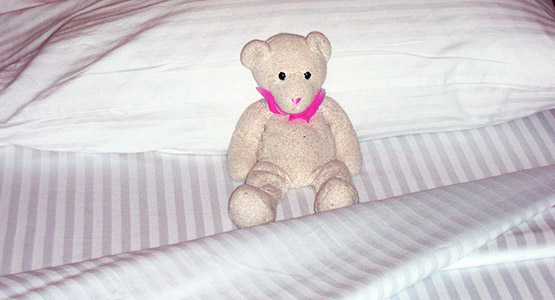Don’t yawn. Nothing in life comes closer to “magic” than a good night’s rest. Not only is it transformative, but it is essential for your wellbeing. It is one of nature’s necessities. And yet, we don’t sleep nearly enough.
According to a recent Gallup Poll, 40% of Americans get less than the recommended hours of sleep a night. We average 6.8 hours of sleep. This represents a decrease of more than an hour since the 1940s. The majority of this diminution occurred in the 1990s and 2000s as rapid technology innovation began shaping today’s “always on” culture.
Modern science is just beginning to understand the scope of damages caused by sleep deprivation. In well-publicized studies, it has been linked to numerous physical, mental and emotional problems, including:
- Weight gain (due to hormone and insulin imbalances)
- Depression
- Memory loss (short- and long-term)
- And a host of other severe consequences, such as heart disease, hypertension and diabetes.
On a broader scale, sleep deprivation is having a staggering impact on the economy. A Wall Street Journal article, Go Ahead, Hit the Snooze Button, profiles the trend of “presenteeism”—showing up for work but performing on a subpar level. Citing findings from a Harvard Medical School study, among others, it reports that one-third of American workers are sleep deprived at a cost of about $63.2 billion in lost productivity.
Sleep deprivation is such a serious problem that, with the help of its corporate partners, Harvard Medical School’s Division of Sleep Medicine kicked off the ReCharge America movement. Their message is crystal clear: “Get 8 hours tonight for a healthier tomorrow.” We couldn’t agree more.
Getting the right amount of sleep has been a topic of concern for doctors, scientists and seers for thousands of years. Sleep is one of the pillars of health in Ayurveda. Ayurveda has always recognized the strong connection between sleep and personal wellbeing.
Forming healthier sleep habits starts with being more conscious. Think about how your typical day impacts your sleep. There is generally a strong correlation between daily decisions and sleepless nights. Over time, routine choices can take on a life of their own.
In Ayurveda, resolving a health issue begins with fixing the root cause or, more likely, the combination of root causes. Here are a few culprits:
- “Always-on” devices (smart phones, tablets, laptops)
- Consciously staying up
- Sensory over-stimulation
- Too much or too little movement
- Medication side effects
- Poor nutrition
Finding the root cause starts with awareness. Take the next week to track the things that might be contributing to your lack of sleep. Here are a few suggestions on what to monitor:
- What time do you crawl into and out of bed?
- How many (nervous system) stimulants do you consume daily?
- Are you on any medicines that impact sleep?
- How many hours a day do you spend on an electronic device like a tablet, smart phone or computer? How much of that time is through a wireless connection?
- How many “lights” are on in your bedroom (digital clock, stereo, security system, etc.)?
- How active is your mind at bedtime?
- What have you eaten during the day? When did you last eat?
- How much movement (exercise) have you gotten during the last 24 hours?
- Are you experiencing any major stressors at work or in your personal life?
When your week is up, carefully review your notes to see if any patterns emerge. You might be surprised!
Throughout the next month, we will be examining the function and importance of sleep. In true Ayureka form, we will dive into current scientific findings to explain the ancient wisdom of Ayurveda. And, as always, this exploration will be paired with common sense suggestions to help you bring about your own personal alignment and wellbeing.


